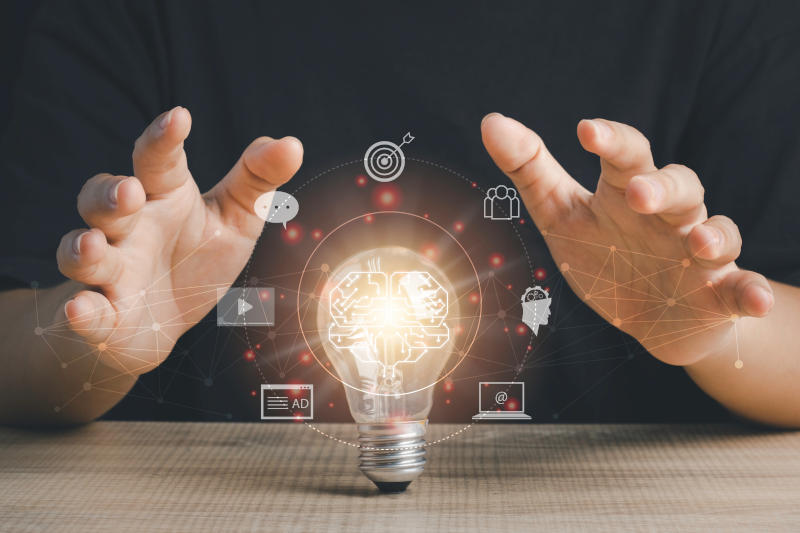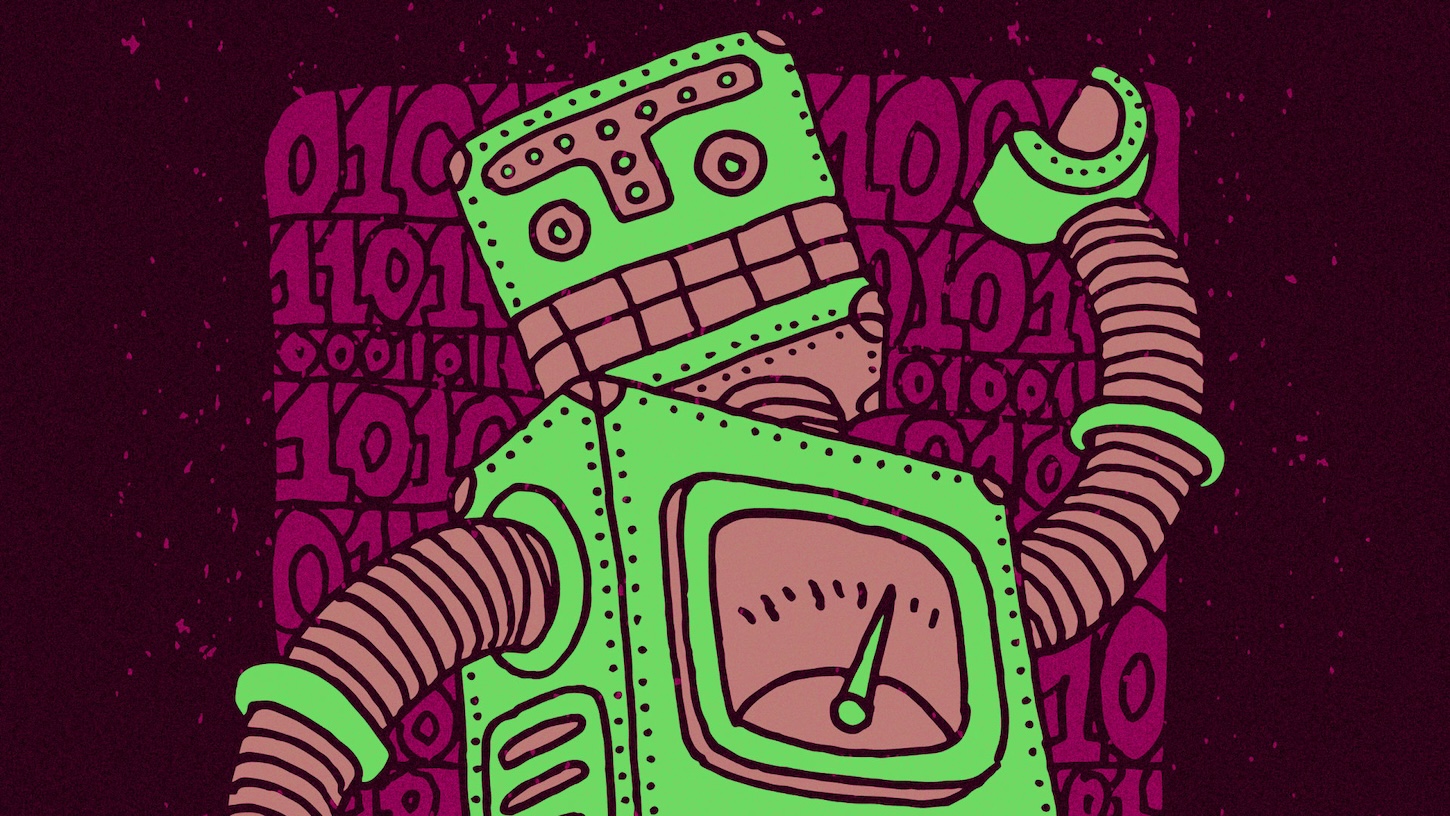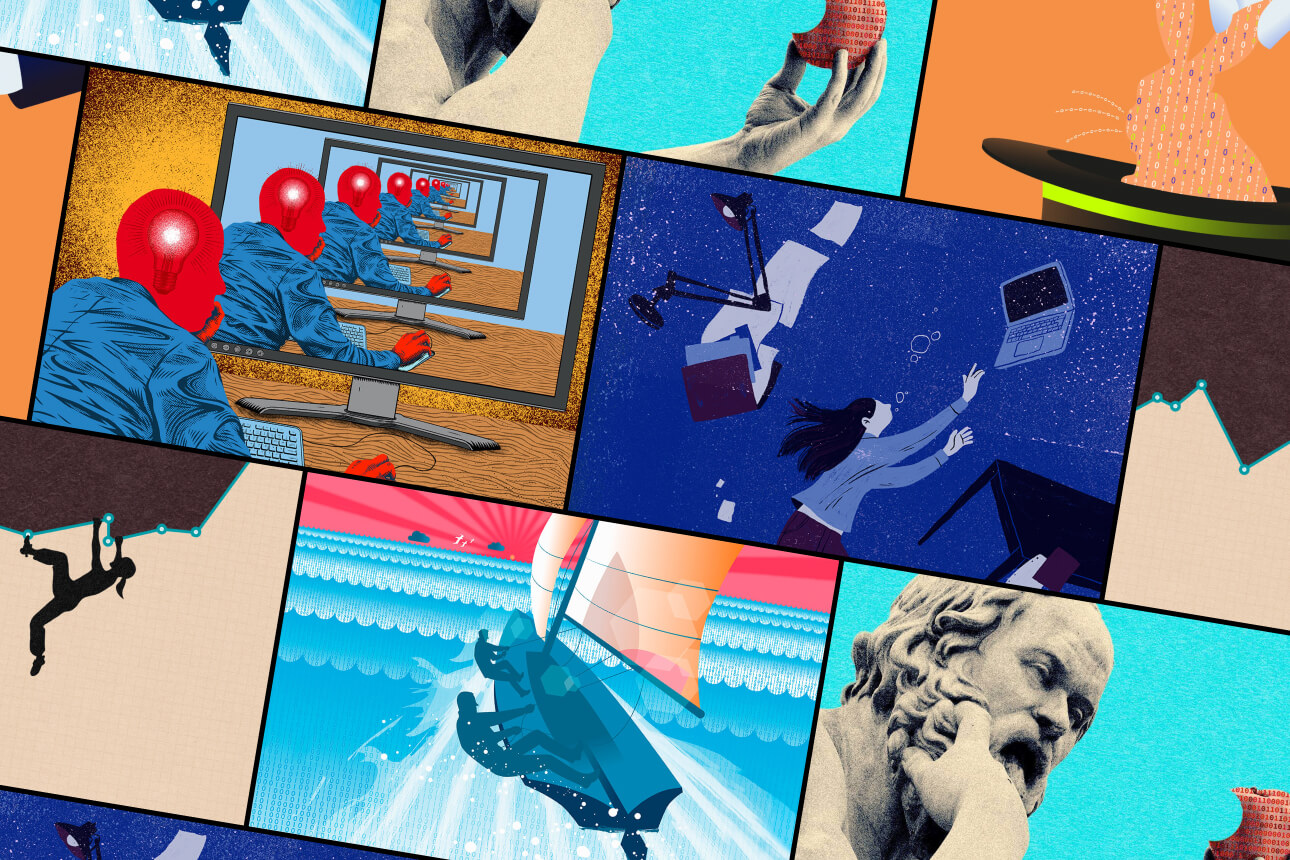Education will need to address the widespread concern of powerful technology being exploited irresponsibly and unethically.
By Faisal Hoque
Going back for countless generations, education has had an inherent emphasis on “training”—imbuing students with sufficient skills to become productive members of the workforce and little else. Even after the ultimate destinations for many of these students—for instance, factories and mills—largely disappeared, education has yet to completely pivot away from the goal of molding young people with sufficient basic skills and education to perform rudimentary work tasks.
If nothing else, that clearly mandates a shift away from traditional learning to more sophisticated material and methodology that will equip students to work effectively with the varied new forms of technology they will inevitably encounter. Given the complexity, sophistication, and import of much of the new technology produced from the Fourth Industrial Revolution, education will also be charged with teaching students the values and beliefs with which such technology can be used both effectively and morally. In so doing, education can help address the widespread concern of powerful technology being exploited irresponsibly and unethically.
TECHNOLOGICAL MORALITY
Teaching about the morality of technology may seem almost cosmetic to some, but it’s far more substantial in its impact. Ignoring the right and wrong of powerful new technology is akin to teach- ing a teenager to drive without paying attention to any road signs and warnings. Moreover, in failing to leverage this opportunity, educational systems at all levels will help fuel fear of technology being used to violate privacy and supplant human labor rather than connect and serve.
That effort needs to begin early in students’ lives and progress exponentially. Rather than suggesting that technology is something that users have to be very careful with, education should emphasize that technology is another means through which students can express their personal values and ethics. Teachers can leverage online curricula to ingrain responsible behavior and practices at an early age from organizations such as:
- iLearn
- BlogSafety
- NetFamilyNews
- Responsible Netizen
This critical need for education and training with a different focus has already attracted the attention of business leaders and executives. According to the World Economic Forum’s “The Future of Jobs 2018,” executives expressed a strong preference for employees with critical-thinking and collaboration skills over those with top-notch technical abilities.
In effect, education at all levels has the very real opportunity to help craft citizens of value to society. As education no longer needs to focus so exclusively on career readiness, education can help shape values and create a place where students can develop a vision for the world that they want to create. With students increasingly seeking to understand the ultimate impact of their work on the world around them, going to school to get a job could be replaced with—or, at the very least, augmented by—critical learning that emphasizes practical decision-making, problem-solving, media literacy, and collaboration. As a result, schools at all levels can respond with programs geared to these sorts of soft skills. That’s a much broader view of the value of education than has been traditionally embraced.
But that’s not to say that education needs to or should pivot away from the pragmatic goals of a meaningful education. As many mainstream, traditional jobs decline, so too should the traditional learning systems that were focused on training for those jobs. Instead, education can become experiential and more focused on students being able to gain applicable, employable skills while in school that can be applied in a fast-evolving work universe. Not only will this recasting of mindsets prove essential to working effectively with greater technological connectivity, but it may also help combat the pervasive nationalism, isolationism, and nativism that’s currently wreaking so much damage in countries throughout the world.
Education and its components will also have the opportunity to meet these and other challenges by remaining as flexible as possible in content, instruction, and other aspects of the learning process. Rather than devoting the first 20 years or so of a person’s life to formal schooling, education will trend toward more informal learning that’s adaptable to people of all ages. Teachers will increasingly adopt the role of mentors rather than instructors serving up information that students merely memorize, guiding students through more individual and autonomous processes of inquiry and research. Here, artificial intelligence (AI), machine learning, and other forms of technology will prove essential in allowing education to leverage the opportunities inherent in widespread change.
On a purely practical level, AI can be used to grade student performance and other administrative responsibilities, thereby freeing up teachers to spend more time on program development and student interaction. AI can also be employed to help tutor students who are struggling with certain basics and fundamentals, leaving human teachers to address more advanced and sophisticated problems.
In these and other areas, education has the opportunity to leverage all the varied technology solutions that were embraced during the COVID-19 pandemic. One obvious tool that will prove critical in leveraging these and other opportunities in education lies in the growing pervasiveness of remote learning. While implemented in response to the pandemic, increased use of technology in education affords the opportunity to “democratize” education—and not just in the capacity to lessen physical boundaries by offering educational resources to more people. With the lack of common ground of a brick-and-mortar school—where, for instance, low-income students may have their sole form of access to computers and other tools—education has the opportunity to minimize this disparity by boosting the number of school-provided laptops, increasing bandwidth, and training teachers and staff for greater use of digital education.
ARE GRADES OBSOLETE?
The varied forms of change and evolution that have and will continue to occur in education raise this central question and some would argue that they are. After all, who among us enjoyed the prospect of sweating out a grade? Moreover, some would maintain that students in a grade-driven environment are far more focused on the grade itself rather than what’s actually being learned—a question more of an ability to memorize and regurgitate than genuinely absorb material.
One possible option with which students can demonstrate proficiency is what’s referred to as a “mastery-based approach.” Here, rather than writing a research paper or being tested repeatedly, students can be charged with re-submitting work as often as needed until they have shown that they have the material down. The priority is ultimately absorption and comprehension, not fact spitting on demand.
A mastery-focused methodology offers a number of advantages. For one thing, it furthers the focus on experiential learning—rather than sweating out a final or term paper grade, students will come to understand that learning doesn’t boil down to a one-shot, sink-or-swim environment. Rather, mastering something often mandates ongoing revision and fine-tuning—an element of real-world life that grade-based education often ignores.
It also underscores a greater focus on and understanding of students’ personal well-being. As we all know, grades can be a brutal experience, and not one that necessarily lends itself to better education. If the schools boost their efforts in the future to teach the value of softer skills such as empathy and understanding, why not apply those same parameters to the way students are judged and held accountable?
ULTIMATELY, though technology at its highest form can perform certain tasks better than humans, people using that technology will need to be equipped with mindsets and ways of thinking that complement technology’s advantages. That will further people’s ability to partner with and leverage technology rather than feeling as though they’re somehow “competing” with the machines—perhaps in a struggle, real or imagined, to save their jobs and livelihoods.
© 2022 by Faisal Hoque. All rights reserved.
This article is adapted from the #1 Wall Street Journal and USA Today best selling book LIFT by Faisal Hoque.
[Photo by Mika Baumeister on Unsplash]
















